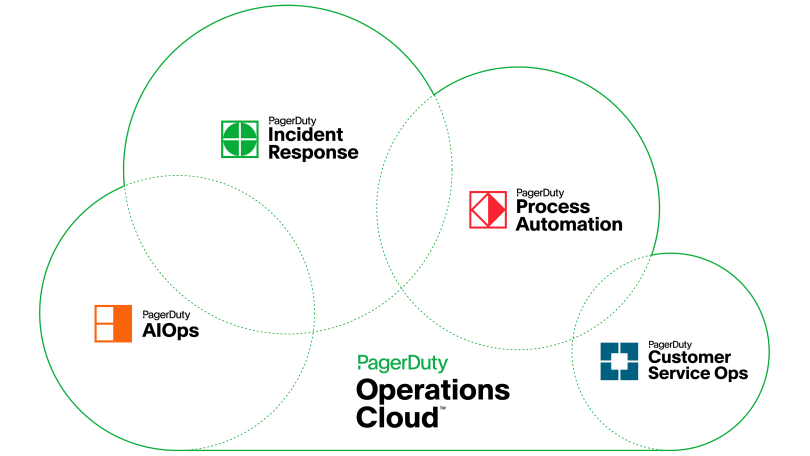Artificial intelligence seems to be at the forefront of almost every tech news story. Machine learning, large language models, and generative AI have gone from technical domain-specific terms to part of general conversation.
Those headlines leave PagerDuty’s Vice President of Platform Advocacy Dormain Drewitz with a question: How do these tools help PagerDuty better understand and deliver on customer needs?
“With the press and glitz and glamor, there is this futuristic view of AI and automation, but we have to think about how we really integrate those tools in our work,” she said. “As we talked with customers and explained what we’re working on, it became clear that we need to help people gain trust in AI and automation and what those tools can achieve.”
Trust is also something PagerDuty builds in-house. According to DevOps Advocate Mandi Walls, a member of Drewitz’ team, the culture at PagerDuty centers around transparency, which she has not found at other companies. “PagerDuty’s dedication to communication alleviates a lot of the stresses that people can have in the workplace,” Walls noted.
What PagerDuty Does
PagerDuty is transforming critical work for modern enterprises. With the PagerDuty Operations Cloud, organizations can compress costs, accelerate productivity and sustain seamless digital experiences.

To help build client trust in its technology, Drewitz explained that PagerDuty’s AI and automation tools have been trained on a decade’s worth of data, allowing products to add immediate value, clearing through system noise and finding disruption patterns.
“When customers see benefits quickly in places where the tool is already proven and tested, the mindset around AI begins to change,” she explained. “We take small steps and build up that trust as we build a center of excellence and then step back and look for more that we can integrate into this automation practice.”
Drewitz also emphasized that the product helps build trust by keeping humans in the loop.
“The generative AI capabilities are drafting things, not going straight to publish, so a human has the opportunity to review and tweak without having to start from a blank page for tasks like writing an incident post-mortem or a status update in the midst of an incident,” she said. “People are being augmented, not being replaced. All these manual tasks eat away at time and productivity, and we can restructure processes to better utilize people’s skills and abilities.”
“People are being augmented, not being replaced.”
Enabling Advancement by Listening to Clients
Powering adoption of these tools for PagerDuty’s clients is AIOps Sales Director Eiad Abunimeh.
In his role, Abunimeh takes on three focus areas: learning as much as he can from customers, enabling the sales team to understand the challenges customers are facing and how PagerDuty can help resolve those challenges, and working closely with PagerDuty’s product team to serve as a liaison between the sales and product teams.
“Translating between sales and product is one of the most valuable things I’m doing right now,” Abunimeh said. “By connecting with both customers and product, we are able to get perspective on the market and communicate what is different about our product. Because PagerDuty has a distributed aspect to the product, customers are able to adopt and scale use more easily, and we want to help our sales team share that message.”
Even as he leads the efforts to help customers expand their understanding and usage of PagerDuty’s AI tools, Abunimeh isn’t in it alone — true to PagerDuty’s “Run Together” value, a team of “field champions” spend time testing messaging, collecting customer feedback and bringing insights back to the team to help tweak the product and approach.
“Getting things right is a never-ending cycle, and our team is supportive and creative, which is a huge asset we get to leverage,” Abunimeh said.
“Getting things right is a never-ending cycle, and our team is supportive and creative, which is a huge asset we get to leverage.”
In addition to Abunimeh’s field champions, PagerDuty’s product managers also spend time working with customers to understand how the product can solve more problems and deepen usage. For Drewitz, customer advisory boards are an especially useful tool, both for the product team and for the customers involved.
“By bringing customers together in a group, they can hear from each other, which sparks ideas about how they can use our products,” she said. “And for the product team, we are able to see what bubbles up as shared priorities, rather than the single point-of-view offered in individual deep-dive conversations.”
It’s no surprise that “Champion the Customer” is a core value at PagerDuty. From Abunimeh in sales to Drewitz in marketing, the PagerDuty team puts customers first — and they’re empowered to do so. Walls noted that she recently took advantage of a training budget offering by taking an online course in customer experience, which she said gave her a different perspective on working with customers.
Hackweek
One way PagerDuty ensures they are constantly innovating for their customers is their HackWeek tradition. PagerDuty’s engineering team ceases their day-to-day work and convenes a HackWeek, during which team members pitch a feature, experiment or project and solicit participation from fellow engineers and other cross-functional team members throughout the company. At the end of the week, the teams present what they’ve been working on and what they’ve learned.
“HackWeek is a great way for folks to meet and work with other teams they might not have regular interaction with, learn more about interesting corners of PagerDuty and show off their creativity,” Walls said. “Some of the HackWeek projects make their way out to customers, others serve as prototypes for future work and some are just fun.”
Working in this client-centric, ever-changing environment requires flexibility and patience, Walls said. “Maybe the market changes or customer requirements change, and sometimes things we thought we were going to be working on don’t get prioritized,” she explained. “Work that will be impactful for users is still going to get done, but maybe it’s not what you were expecting! Folks who are willing to embrace change will have more success [as an employee] here.”
For Drewitz, an understanding of how the company’s features and tools work together to build an enterprise-level ecosystem of support for customers aids in team members’ adaptability.
“There are plenty of vendors trying to solve similar problems in different ways, but PagerDuty is really the only company taking a holistic approach to how AI and automation can help people get more efficient in their digital operations,” Drewitz said. “As everything becomes more complex and the stakes get higher, PagerDuty is able to support teams in getting their jobs done.”







